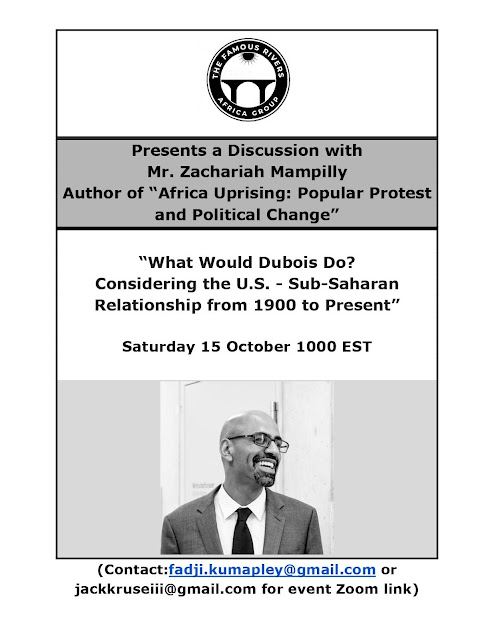NOTE: We held our first session on 9 January 2021. We had some technical Zoom problems so only the audio version of the event is available for our members. The recording is available at our Facebook Group Page.
Professor Jennifer Cooke Bio:
FRAG Introductory Remarks:
As Americans, it is hard for us to proceed without thinking about the events that unfolded this week in DC. Congresswoman Elissa Slotkin declared that “"The post-9/11 era is over. The single greatest national security threat right now is our internal division. If we don't reconnect our two Americas, the threats will not have to come from the outside." In this context, we believe forums such as these are more important than ever in creating the space for having frank and honest debates about geopolitical issues in our field. We hope these webinars will inspire our group to think creatively for ways to work together, as one, to address issues that, if unresolved, could have serious ramifications here at home. With that said, let’s proceed with the Q&A session.- So many in our group have daughters and sons growing alongside of us in locations across the African continent, can you share with us some memories and/or lessons growing up in Côte d’Ivoire and the Central African Republic and how they shaped you?
- All too often, we gloss over someone’s CV or Bio in the introductory remarks but perhaps you could share a little about your professional journey: what were the “famous rivers” that you crossed since graduating from Harvard? In particular, perhaps you could speak a little on the National Academy of Sciences in the Office of Human Rights--that’s an organization that some may not have heard but which has an important mission.
- How important is Africa to American national security and economic prosperity?
- Too often, US-Africa policy is framed through the lens of foreign aid, humanitarian assistance, and support for peacekeeping operations. Does that view miss the mark? If so, how do we change the narrative to allow Americans to view Africa as an asset instead of a liability? The underlying assumption here is that with a reassessed importance, Washington would be more apt to prioritize engagement with Africa.
- What are the People’s Republic of China’s ultimate actual goals in Africa? Are those goals beneficial to Africa? Are those goals compatible with U.S. objectives? If so, are there areas for cooperation or is the GPC narrative a permanent one for the foreseeable future?
- What are your views on US economic policies in Africa to counter Chinese influence in a new administration? Is what we have in place enough? (AGOA, MCC, OPIC)
- How have the PRC’s Forum On China-Africa Cooperation (FOCAC), Infrastructure investment by way of the Belt and Road Initiative, and military basing in Djibouti changed the China-Africa Policy landscape?
- Recent Afro-barometer surveys in African countries have shown that a growing number of Africans hold positive views of the PRC’s development model and engagement in Africa. Although Beijing still lags behind the US, the surveys have shown that Beijing is trending up. Do you worry the US will be eclipsed by China in the near future? If so, what would the ramifications of an Africa that looks to Beijing instead of Washington be?
- What is the scorecard for American Post-independence engagement with Africa? Have we succeeded or failed?
Related Article:
How America and Democracies Around the World Can Defeat Illiberalism by Michele Lowe




No comments:
Post a Comment